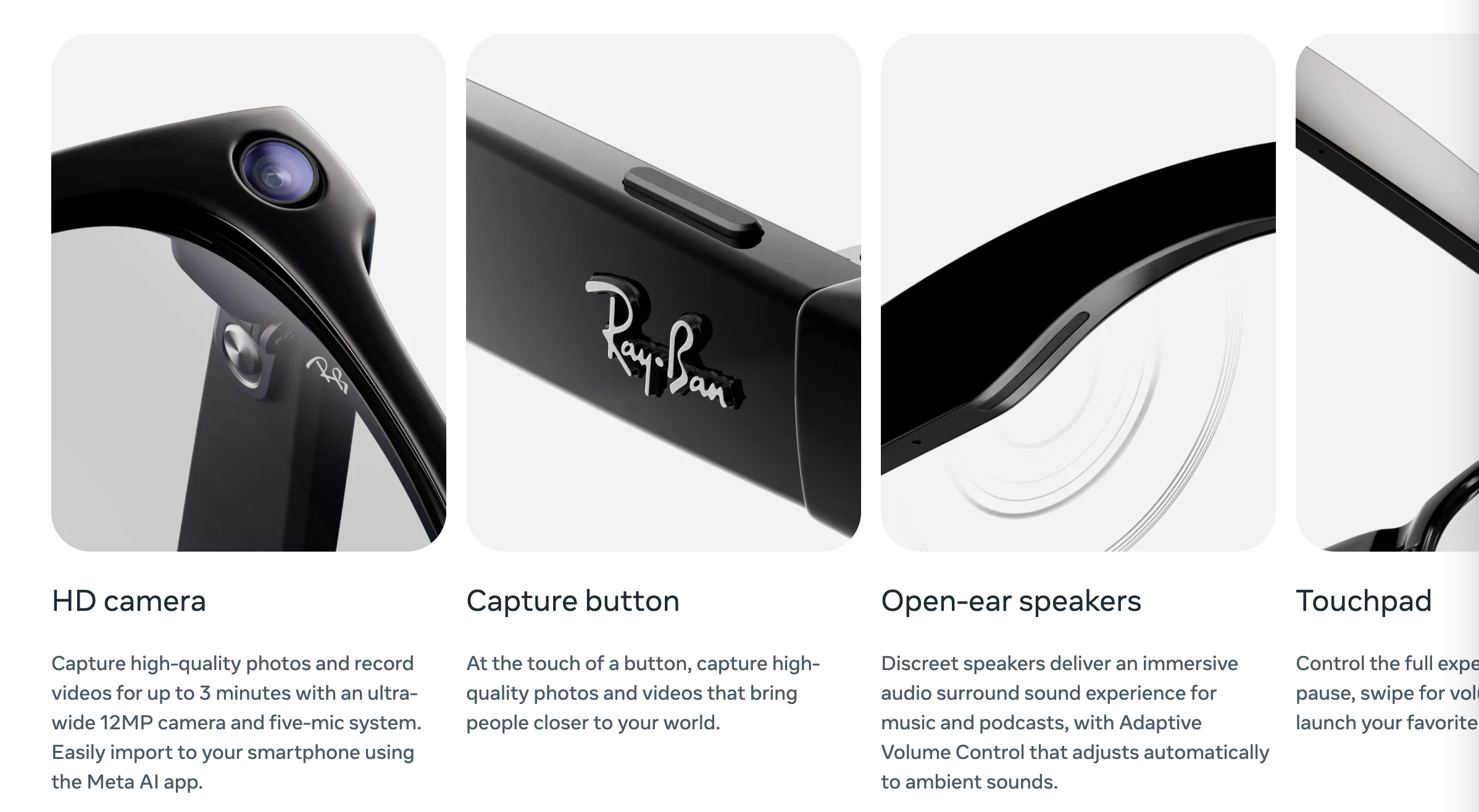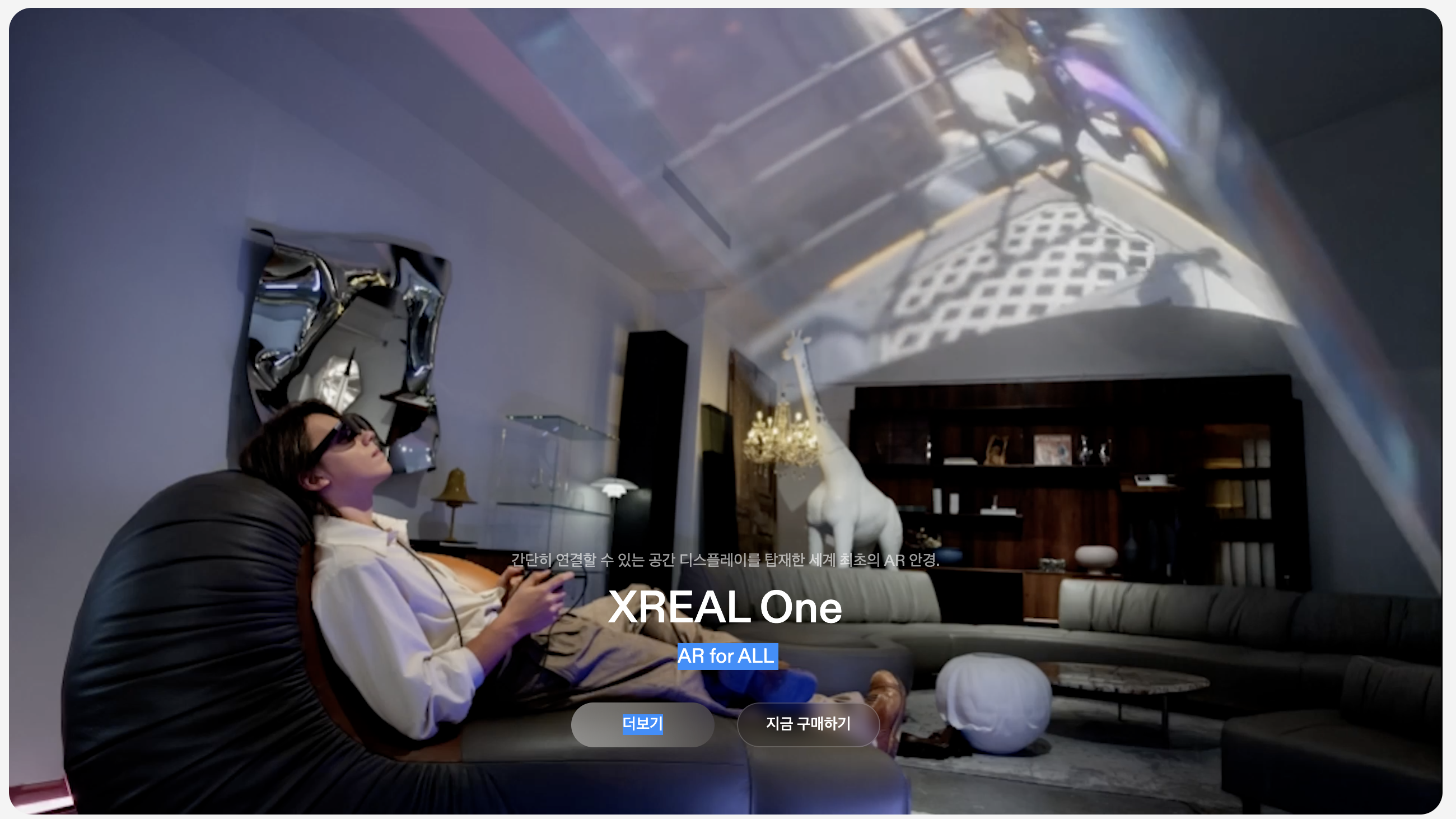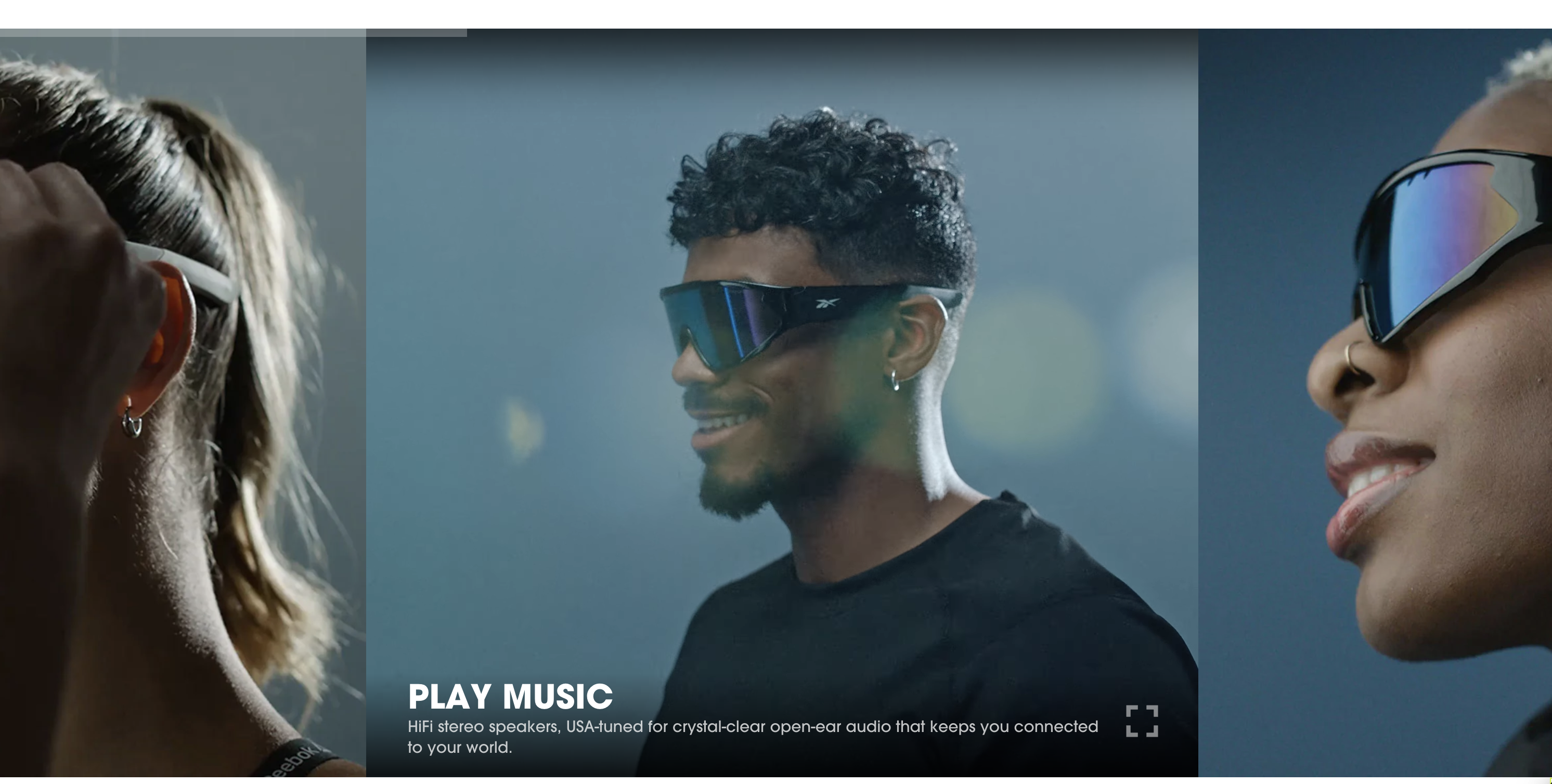Smart Glasses’ Future | 매거진에 참여하세요
Smart Glasses’ Future
#smartglass #product #release #function #price #comparison #future
Smart glasses are no longer some sci-fi fantasy. With advances in AI, AR, voice recognition, and spatial computing, brands across the globe are actively rolling out smart eyewear to everyday consumers.
But here's the real story: as hardware evolves, the real opportunity lies in software
—apps, experiences, and entire ecosystems built around the new way we see the world.
Let’s break it down.
1. Ray-Ban Meta: Classic Looks, Cutting-Edge AI

In a partnership that turns heads, Meta teamed up with Ray-Ban to create stylish smart glasses that blend fashion with functionality.
- Camera: 12MP for crisp photos and 1080p video
- Voice Assistant: Integrated Meta AI
- Streaming & Messaging: Real-time video, calls, texts
- Latest Update (May 2024): “Look and Ask” – Ask the glasses about what you’re looking at, and get answers instantly
- Launched: Oct 2023 / Update: May 2024

Pros:
Stylish, everyday wearable (hello, Wayfarer!)
Great camera/audio performance
Meta AI voice commands make hands-free living real
Cons:
Privacy concerns (you can record without others knowing)
Battery life drops fast during video calls
Bluetooth pairing issues for some users
2. XREAL Air 2 & Air 2 Ultra: AR Cinema On Your Face
XREAL is making big waves in AR display tech—and their 2024 lineup is proof.
- Display: 1080p Micro-OLED @ 120Hz
- Air 2 Ultra: Adds 6DoF tracking and hand gesture control
- Use Case: Movies, games, work, multitasking on-the-go
- Launched: Jan 2024 (Air 2), Feb 2024 (Ultra)

Pros:
Stunning visuals (Sony OLED panels = chef’s kiss)
Super lightweight (75g)
Compatible with almost everything—including iPhone 15
Cons:
Some edge blur in visuals
Beam Pro connector causes color/clarity loss
Can’t use Beam Pro while charging (big oof on long trips)
3. Lucyd Darkside: Budget-Friendly, AI-Ready
Lucyd's smart glasses might not be flashy, but they’re practical and affordable—with built-in audio and ChatGPT support.
- Audio: Bluetooth-enabled open-ear
- Battery Life: Up to 12 hours
- Prescription-Ready:
Swappable lenses for daily use
- Launched: July 2023

Pros:
Casual design that looks like regular glasses
Long battery life
Supports Siri, Google Assistant, and ChatGPT via voice
Cons:
Weak bass, limited audio depth
Some discomfort reported from longer temple arms
Clunky dual-port charging system
Quick Comparison
Product | Launch Year | Battery Life | Weight | Key Features | Price |
|---|---|---|---|---|---|
Ray-Ban Meta | 2023 / 2024 | Up to 36 hours | ~48g | Meta AI, Look & Ask, streaming, voice cmd | $299–$449 |
XREAL Air 2 | 2024 | ~5 hours | ~71g | 1080p OLED, 120Hz | $399 |
XREAL Air 2 Ultra | 2024 | ~5 hours | ~80g | 6DoF, gesture tracking | $699 |
Lucyd Darkside | 2023 | Up to 12 hours | ~50g | Bluetooth audio, prescription lenses | $150 |
Why Smart Glasses Are the Next Big Platform
Smartphones made us mobile. Smart glasses make us context-aware.
They’re worn all day, and they know where you are, what you’re looking at, and what time it is.
Here’s where things get exciting:
App Ecosystems Built for the Eyes
Forget touchscreens. Smart glasses rely on voice, gaze, and gestures.
That means mobile apps can’t just be ported over—they must be reimagined.
Always in Your Field of View
Smart glasses are always on-screen. Perfect for real-time, contextual experiences like translation, directions, or even restaurant recommendations based on where you’re looking.
Two Emerging App Markets
- Extensions of Existing Apps
Think: voice-activated messaging, live translation, calendars, or heads-up notifications—built for glasses.- Entirely New Categories
Imagine:Glance-based marketing (look at a product → see reviews)
Context-driven media (walk past a theater → trailer plays)
AI-enhanced social apps that react to your surroundings
3 Design Principles for Smart Glasses UX
- “Seeing” is the new clicking
Interfaces must be minimalist, intuitive, and non-intrusive.- Two-way in real-time
Instant reactions to your questions and surroundings are key. Lag kills trust.- Context is king
Glasses know more than GPS—combine gaze, time, and location for hyper-targeted info.
Tech Stack for Smart Glasses Apps
Component | Details |
|---|---|
Eye Tracking | Tobii SDK, Unity plugins |
Spatial Mapping | ARKit, ARCore, LiDAR |
Voice Interface | OpenAI API, Whisper, Google Speech |
Battery Optimization | Cloud-based processing preferred |
Platforms | Android XR, VisionOS, Unity |
Privacy UI | Clear camera/mic indicators are a must |
What Kind of Apps Could You Build?
- Real-Time Translation: Subtitles appear beside the speaker’s face.
- AI Assistant: Auto-schedule meetings, summarize conversations, greet colleagues.
- Fitness Coach: Get real-time posture feedback while working out.
- Visual Shopping: See it → click it with your eyes → buy it.
- Industrial Training: Real-time AR guides in factories, hospitals, or repair sites.
Final Thought
Smart glasses are more than wearable screens.
They're intelligent interfaces for the world around us. And we’re just scratching the surface.
The next unicorn app? It might not be built for your phone. It might be built for your face.






